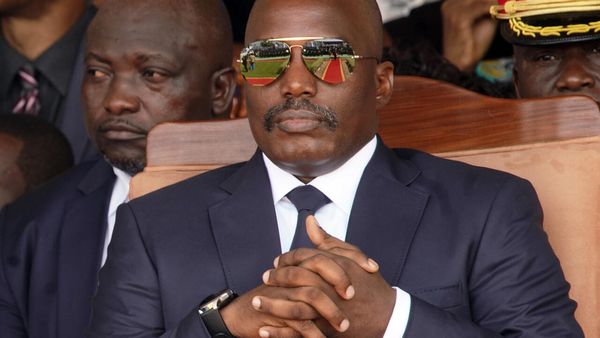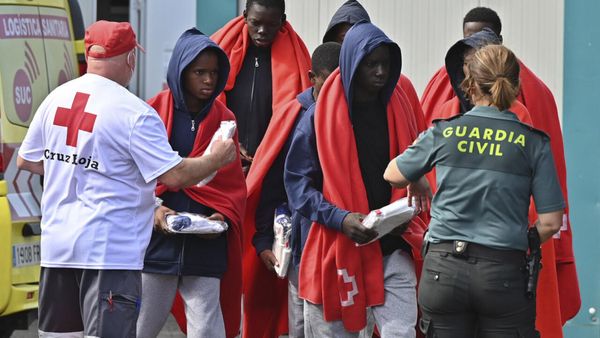
More than 300,000 people in the Democratic Republic of the Congo (DRC) have had to abandon their homes because of fighting between the M23 rebel group and the government last month.
According to the UN’s refugee agency, UNHCR, more than 800,000 people have now been displaced by the conflict since last March, and there is a humanitarian crisis that regional and international powers have allowed to fester.
Failed attempts to secure a ceasefire have allowed fighting to continue unabated between M23 and government troops in a region already scarred by the presence of dozens of armed groups.
Emmanuel Lampaert, the DRC coordinator for Médecins Sans Frontières in central Africa, said the conflict has created a heavy humanitarian burden, with outbreaks of measles and cholera. Many people have gone to the outskirts of regional capital, Goma, looking for safety.
“It’s the same places, the same filthy conditions. Families living in self-made small settlements, unworthy, inhuman,” Lampaert said.
The response to the conflict has been “embarrassing”, Lampaert said, adding that €34m (£30m) pledged by France earlier this month was not enough. “It’s a very late, very imperfect response that’s not at all in proportion to the needs. Suddenly, after one year, they’re saying they want to stop this crisis being forgotten. My question is, where the hell have you been?” he said.
UNHCR has asked for $233m (£192m) to support its work, but only 8% has been pledged.
“Knowing that women and children are living exposed to the elements, in some cases sleeping at the edge of the highway in North Kivu, angers me,” said Angele Dikongue-Atangana, the UNHCR’s representative in DRC.
“We need peace so that civilians stop being collateral damage of the conflict, and so that forced displacement in eastern DRC ends.”
The conflict has brought reports of widespread human rights abuses, including murder, rape, looting and the burning of homes. Thomas Fessy, a senior DRC researcher for Human Rights Watch, said M23 had left behind a “trail of war crimes”.
“We’ve documented horrific crimes that M23 rebels committed against civilians, including summary executions and forced recruitment,” he said. “The warring parties have increasingly appealed to ethnic loyalties, putting civilians in remote areas of Masisi and Rutshuru at a heightened risk, and pitting communities against each other.”
While M23 has been accused of violence against civilians, such as the killing of 32 people in February, conditions in the region are made worse by the presence of other armed groups. The Allied Democratic Forces, which claims affiliation with militant group Islamic State, have reportedly killed 63 people in two attacks over the past week.
DRC’s east African neighbours and Angola have all supported talks aimed at securing a ceasefire but fighting has continued.
Jean-Mobert Senga, a researcher for Amnesty International in DRC, said the violence could worsen this year. “No one seems concerned with addressing the real causes and drivers of the conflict, including widespread impunity for serious atrocities committed in the DRC for nearly 30 years, endemic corruption, or poor governance in the DRC.
“The focus on the M23, which is just one of hundreds of armed groups that kill, rape and loot every day, is proof of the cynical approach in eastern DRC that only prolongs the suffering of millions of men, women and children on the frontlines of the conflict.”
Remadji Hoinathy, senior researcher for the region at the Institute of Security Studies Africa, said the peace process has not been efficient. Tensions between DRC and Rwanda, which accuse each other of supporting militias on each other’s territory, have come close to escalation, he said.
“There’s also hate speech developing in the region that needs to be monitored. This could be a situation that worsens with direct intercommunal tension, and the humanitarian situation could drag on.”







